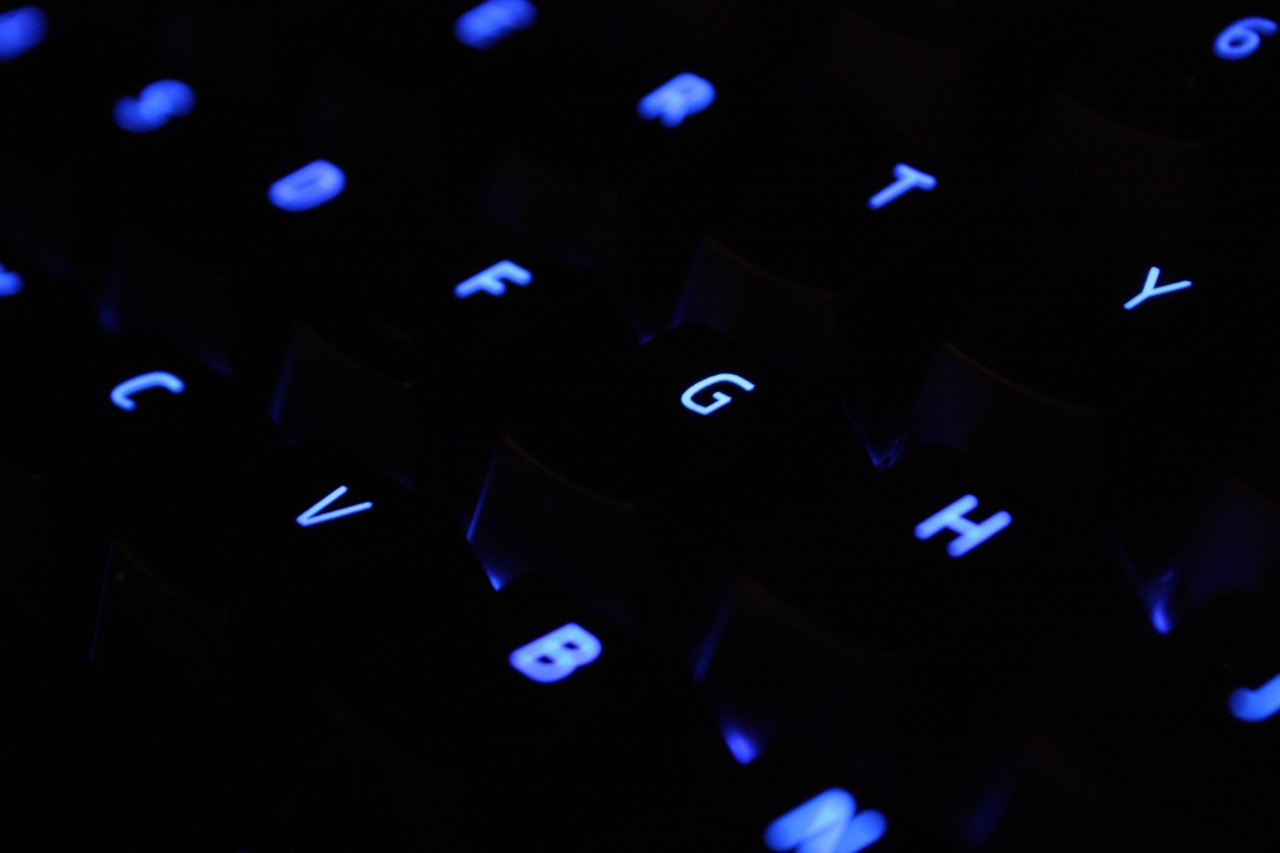Sleep is a vital component of a healthy lifestyle. It restores our energy levels, promotes overall well-being, and allows our bodies to heal and repair.
However, in today’s technology-driven world, our sleep quality is being greatly affected by the excessive exposure to blue light from electronic devices. In this article, we will explore the connection between sleep quality and blue light, and why it is crucial to be aware of this link.
What is Blue Light?
Before we delve into the effects of blue light on sleep quality, let’s first understand what blue light is.
Blue light is a short-wavelength, high-energy light that is emitted by the sun as well as by artificial sources such as smartphones, tablets, computers, and LED lights. While exposure to natural blue light during the daytime can be beneficial for our well-being, excessive exposure to artificial blue light, especially during the evening and night, can disrupt our sleep patterns.
The Circadian Rhythm and Sleep
To comprehend the impact of blue light on sleep quality, it is essential to grasp the concept of the circadian rhythm.
Our bodies have an internal biological clock, known as the circadian rhythm, which helps regulate various physiological processes, including our sleep-wake cycle. The circadian rhythm is influenced by external cues, such as light and darkness.
During the day, exposure to natural light, particularly blue light, helps to keep our circadian rhythm aligned, promoting alertness and wakefulness.
However, when it comes to the evening and night, the body’s natural response is to prepare for sleep. This is achieved through the release of the hormone melatonin, which is responsible for regulating our sleep patterns.
The Disruptive Effects of Blue Light on Sleep
Excessive exposure to blue light in the evening and night can interfere with our body’s natural secretion of melatonin.
Electronic devices emit blue light that can suppress melatonin production, tricking our bodies into thinking it is still daytime, thus making it difficult to fall asleep.
Research has shown that exposure to blue light before bedtime can have detrimental effects on sleep quality.
Studies indicate that individuals who use electronic devices, such as smartphones or tablets, before sleep experience less restful sleep and often take longer to fall asleep. The delay in falling asleep can lead to reduced sleep duration, leaving individuals feeling tired and less productive the next day.
The Impact on Health and Well-being
Insufficient and poor-quality sleep can have a significant impact on our overall health and well-being. Sleep deprivation can weaken the immune system, making individuals more susceptible to common illnesses.
It can also contribute to weight gain, as disrupted sleep negatively affects appetite-regulating hormones, leading to increased cravings and a higher calorie intake.
Poor sleep quality has also been linked to an increased risk of developing chronic conditions such as cardiovascular diseases, diabetes, and depression.
In addition, inadequate sleep can negatively impact cognitive abilities, including memory, concentration, and decision-making.
Strategies to Improve Sleep Quality
To mitigate the disruptive effects of blue light on sleep quality, several strategies can be implemented:.
1. Limit Exposure to Blue Light
Reduce exposure to electronic devices emitting blue light, especially within 1-2 hours before bedtime. Instead, engage in relaxing activities such as reading a book, practicing mindfulness meditation, or taking a warm bath.
Establishing a technology-free bedtime routine can significantly improve sleep quality.
2. Use Filter Apps or Glasses
Installing filter apps on electronic devices or using blue light-blocking glasses can help reduce the amount of blue light that reaches your eyes. These tools adjust the screen temperature, making it warmer and less stimulating to the circadian rhythm.
3. Optimize Sleep Environment
Create a sleep-friendly environment by ensuring your bedroom is dark, quiet, and cool.
Use curtains or blinds to block out external light sources, wear earplugs or use white noise machines to minimize noise disturbances, and maintain a comfortable temperature for optimal sleep.
4. Establish a Consistent Sleep Schedule
Stick to a regular sleep schedule by going to bed and waking up at the same time each day, even on weekends. This practice helps regulate your body’s internal clock and improves sleep quality naturally.
5. Consider Blue Light Filters for Devices
Some devices offer built-in blue light filter settings that can be enabled. These filters adjust the screen display to reduce the emission of blue light.
Explore the settings on your devices or consider using external blue light filters to protect your eyes and sleep quality.
The Importance of Being Aware
Understanding the connection between sleep quality and blue light is crucial for maintaining a healthy sleep routine.
By adopting strategies to limit blue light exposure in the evening and night, we can improve our sleep patterns, leading to better physical and mental well-being.
In conclusion, excessive exposure to blue light, particularly from electronic devices, can significantly impact our sleep quality.
By implementing simple but effective measures to reduce blue light exposure and create a sleep-friendly environment, we can ensure a restful night’s sleep, ultimately improving our overall quality of life.































